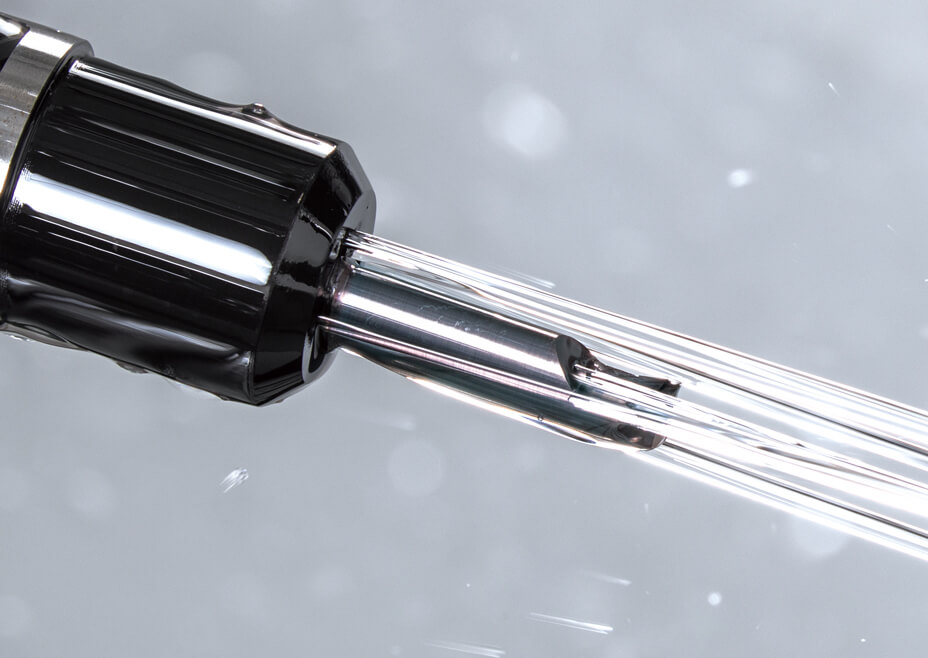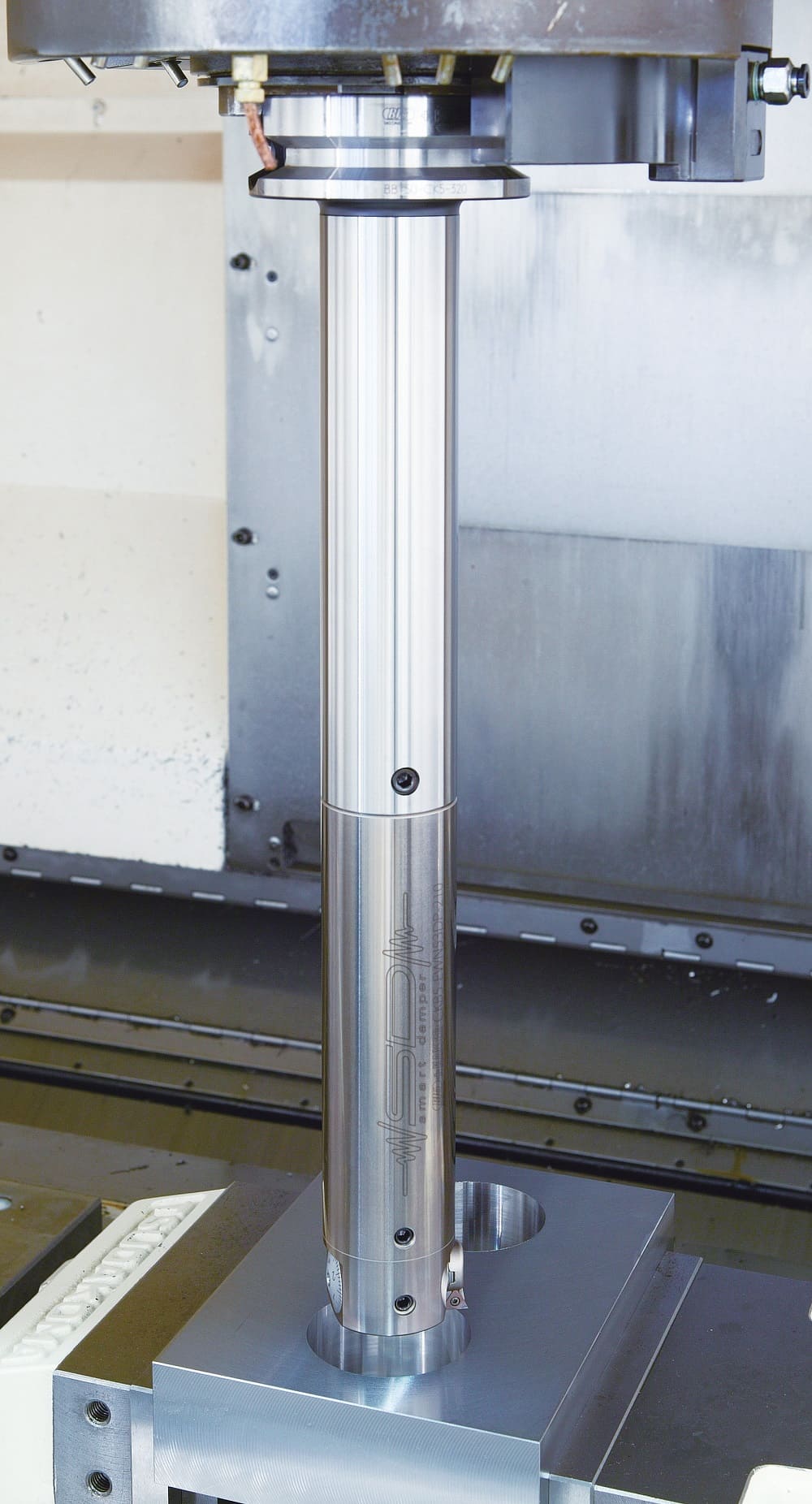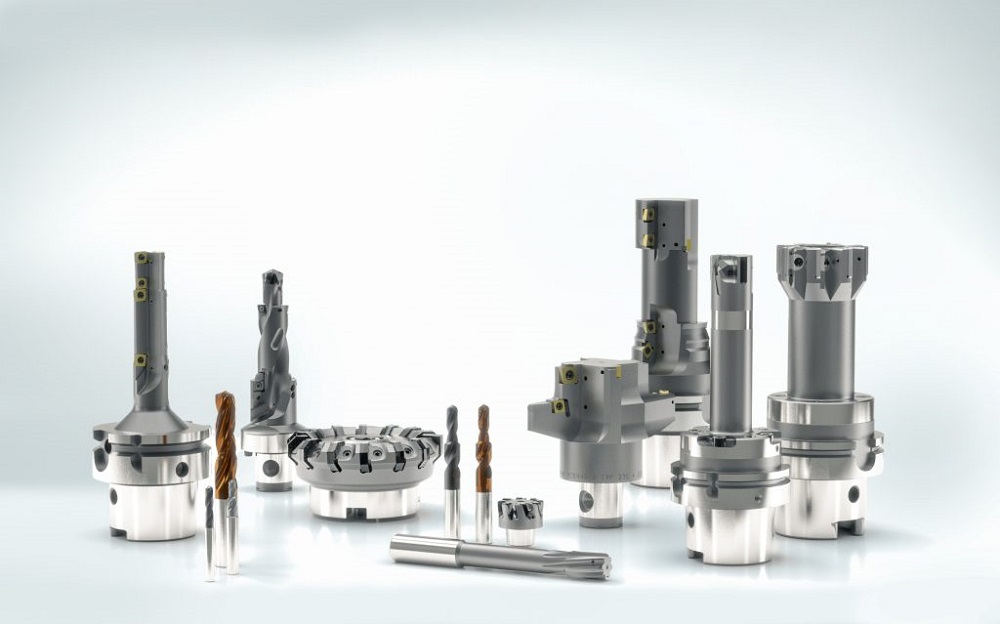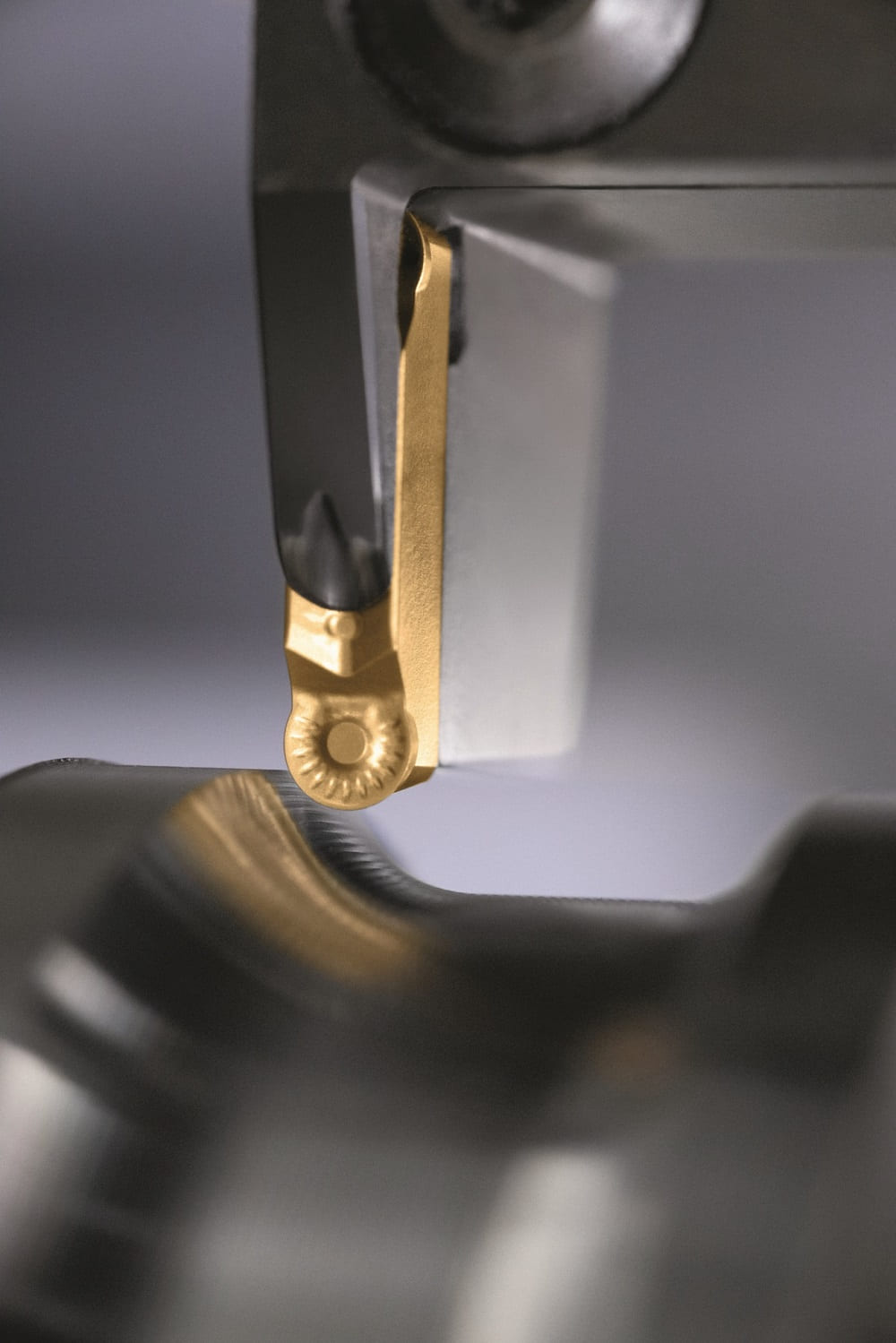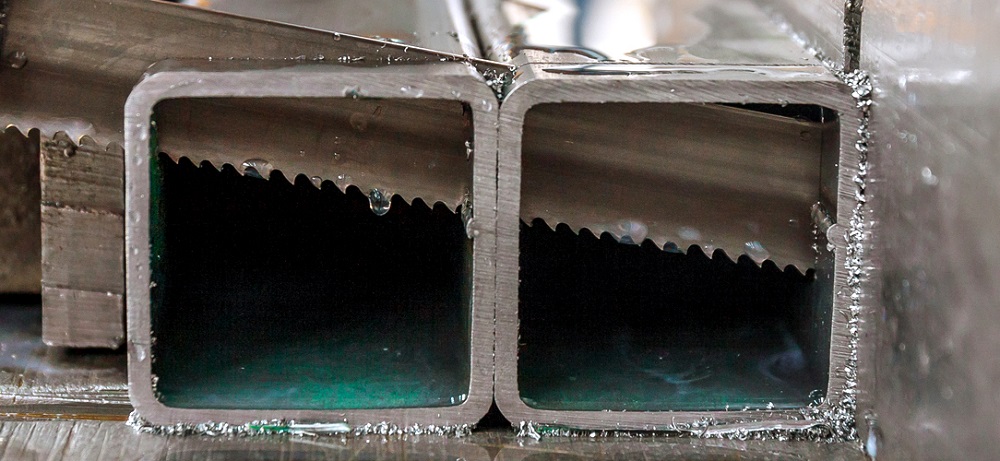Tungaloy is adding 146 new solid-carbide mini boring bars to its TinyMiniTurn series. The new mini bars are available in a wear- and fracture-resistant grade SH725, and with through-coolant.
TinyMiniTurn incorporates a variety of small-diameter boring tools, including solid-carbide mini boring bars for as small as 0.6 mm diameter boring and boring bars with a brazed CBN tip. The series also offers an indexable solution which comes with a tiny insert featuring an optimised pressed-in chipbreaker, enabling boring down to 5 mm diameter.
Tungaloy’s TinyMiniTurn solid-carbide miniboring bar line includes10 different geometry types for internal turning, profiling, grooving, deep facing and thread-turning operations. Furthermore, the JBBS-4N tool sleeve designed to hold TinyMiniTurn solid-carbide boring bars features four periphery coolant outlets situated on the tool periphery that direct the coolant to the optimal positions close to the cutting zone. This capability provides improved coolant supply and predictable tool life, reports the company.
The new solid-carbide mini boring bars are available in SH725 grade, a PVD-coated grade that Tungaloy says provides the boring bars with an excellent balance of wear and chipping resistance. In combination with through-coolant, the boring bars enable high-performance chip evacuation and long tool life. The use of JBBS-4N tool sleeve will further improve chip evacuation for minimum machine downtime by preventing chips from ‘bird nesting’ around the tool and workpiece, which is a common cause of machine stoppages.For further information www.tungaloy.com







